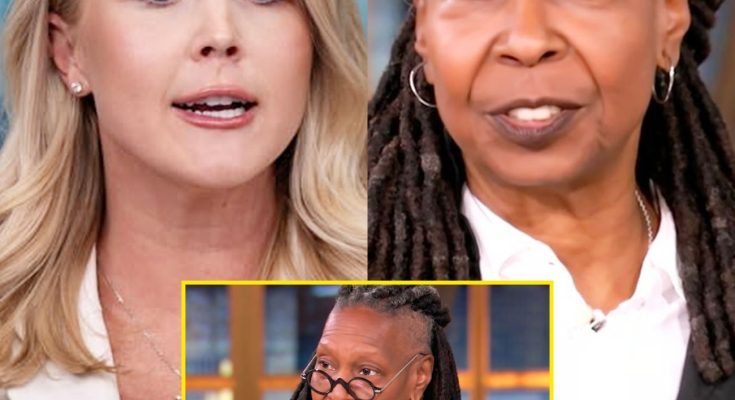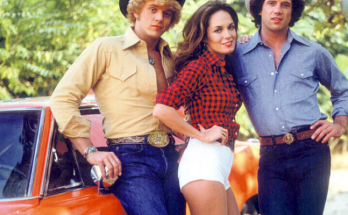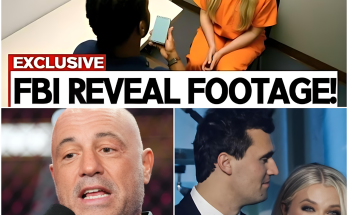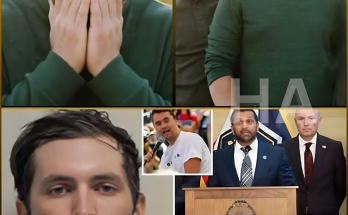Television Just Got Hit with a Storm: Karoline Leavitt Throws Unexpected Shade at Whoopi Goldberg and The View
In a dramatic turn of events that has captivated audiences and ignited discussions across social media, White House Press Secretary Karoline Leavitt recently clashed with the hosts of ABC’s “The View,” particularly with the iconic Whoopi Goldberg. This confrontation, which unfolded during a live broadcast, has not only left viewers stunned but has also highlighted the deep ideological divides in American media and politics. As the nation gears up for the 2024 elections, this incident raises critical questions about media bias, accountability, and the Democratic Party’s struggle to connect with a diverse electorate.
The conflict began to brew during Leavitt’s press briefings, where her bold and confrontational style took center stage. Leavitt, a rising star in the Republican Party and a self-proclaimed voice for Gen Z, has been vocal about what she perceives as distorted reporting by mainstream media outlets, including “The View.” The talk show, often criticized for its left-leaning perspective, has faced accusations of prioritizing narrative over accuracy, a sentiment that Leavitt has seized upon to bolster her position.

Tensions reached a boiling point when “The View” addressed Leavitt’s statements on air. In a moment that quickly went viral, Leavitt’s sharp counterattacks left Goldberg visibly rattled, struggling to steer the conversation back on track. Clips of this exchange circulated widely on social media, prompting a flurry of reactions from viewers who felt that the show’s hosts were out of touch with the sentiments of many Americans.
“This isn’t just a personal spat—it’s a clash over how media influences public perception,” said Dr. Margaret Holt, a media scholar at New York University. “Leavitt’s direct challenges to perceived falsehoods resonate with those who feel ignored by legacy media.” Her rise as a prominent Republican voice, coupled with her willingness to confront established platforms, has unsettled “The View,” a program that has long enjoyed a comfortable position in the media landscape.

In a particularly memorable segment, Goldberg delivered a blistering history lesson on “wokeness” in response to Leavitt’s critiques. However, many viewers felt that her emotional responses detracted from the substantive debate at hand. Social media users criticized Goldberg for sidestepping the issues and resorting to personal jabs rather than engaging in a meaningful discussion. Analyst Sarah Lin noted, “People are fed up with media figures who seem detached from everyday concerns. There’s a demand for greater honesty and rigor in journalism.”
The fallout from this confrontation has not been limited to social media. Prominent conservative commentators, including Laura Ingraham and Kayleigh McEnany, have weighed in, with Ingraham labeling “The View” a “repetitive outrage machine” and McEnany calling it “chaotic” for allegedly spreading inaccuracies. These critiques reflect a broader media environment where sensationalism often trumps truth, eroding public confidence in established news outlets.
Interestingly, even some liberal commentators have begun to voice concerns about “The View’s” partisan tilt. This rare criticism from within the left suggests a growing recognition that one-sided commentary may undermine meaningful political dialogue. As the media landscape continues to evolve, the need for balanced and honest discourse has never been more pressing.
:max_bytes(150000):strip_icc()/whoopi-goldberg-the-view-031325-9c8c8c886b0d4802882d9185d18e188d.jpg)
The Leavitt-“The View” saga also underscores the challenges facing the Democratic Party as it seeks to connect with a diverse electorate. Many voters feel alienated by a party that sometimes appears elitist or out of touch with their everyday concerns. As the 2024 election approaches, bridging this gap through open and respectful dialogue will be crucial for the party’s future. The debate over media bias and the influence of talk shows like “The View” will only intensify, forcing a reckoning over how political narratives are crafted and consumed.
In the wake of this confrontation, it is clear that the dynamics of political discourse are shifting. Leavitt’s willingness to challenge established media figures has resonated with a segment of the population that feels overlooked and misrepresented. This growing disconnect between mainstream media narratives and the sentiments of everyday Americans is a trend that cannot be ignored.
As the dust settles from this high-profile clash, it remains to be seen how it will impact the broader media landscape and political discourse in the United States. Will “The View” adapt to the changing expectations of its audience, or will it continue to operate within its established framework? And how will Leavitt’s rise as a prominent Republican voice influence the way political narratives are shaped in the future?
In conclusion, the unexpected shade thrown by Karoline Leavitt at Whoopi Goldberg and “The View” has sparked a significant conversation about media bias, accountability, and the challenges facing the Democratic Party. As audiences continue to engage with this unfolding drama, it serves as a reminder of the power of media in shaping public perception and the importance of fostering open, honest dialogue in an increasingly polarized political landscape. The implications of this clash will likely rever



